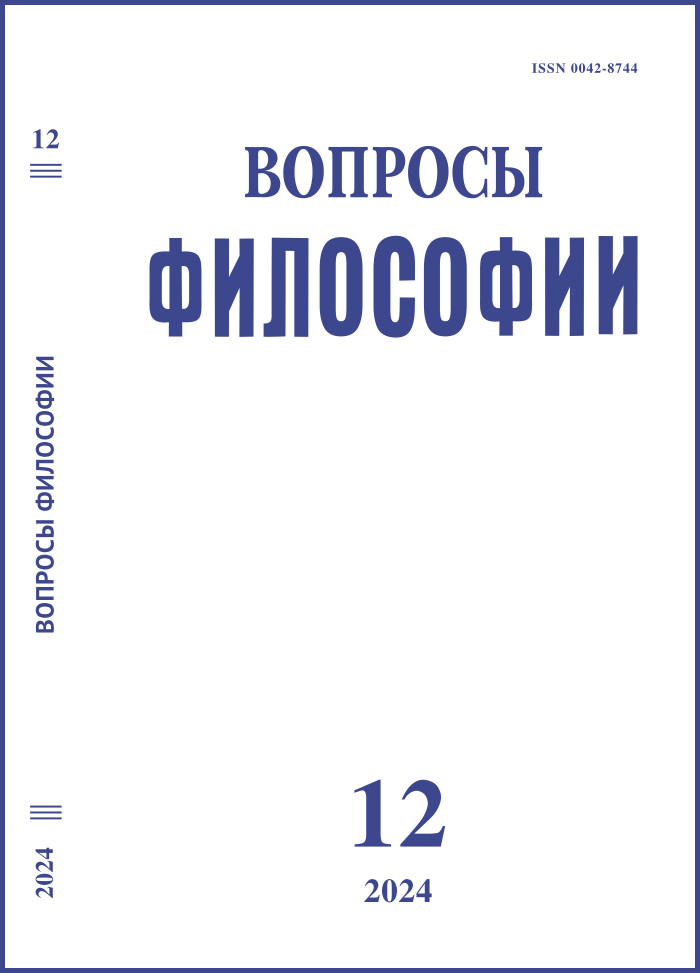Interdisciplinarity as a Philosophical-Epistemological Problem in Modern Science
DOI:
https://doi.org/10.21146/0042-8744-2024-12-6-14Keywords:
science, philosophy of science, interdisciplinarity, polydisciplinarity, collaboration, scientific discipline, human-sizedness, communicationAbstract
Understanding the phenomenon of interdisciplinary research in modern science is becoming one of the most important thematic directions in epistemology and the philosophy of science. This article focuses on the philosophical-methodological examination of the cognitive aspects of this phenomenon. While references to its interpretations in global and domestic science studies, educational, and philosophical (phenomenological) literature are certainly present, the core of the publication lies in the philosophical-methodological analysis of historically established issues related to the characteristics of interdisciplinary research in modern science. The author draws on the principles of cultural-historical epistemology, emphasizing the cognitive significance of incorporating the socio-humanitarian factor into the domain of contemporary scientific knowledge (the “human-sizedness”), and thus highlights the epistemological aspects of mutual understanding between scientists representing various disciplines in the context of the cognitive and organizational features of interdisciplinary research. This perspective of philosophical-methodological reflection on cognitive issues is projected onto a specific epistemological phenomenon – the forms of interaction between scientific disciplines in modern science, most vividly represented within interdisciplinary research programs in megascience (microphysics, cosmology, ecology, cognitive science). Such interaction increasingly takes the form of polydisciplinary collaboration today, requiring scientists to understand and mutually translate disciplinary semiotic thesauruses, account for historical continuity in the development of knowledge, and, of course, have a clear sense of their path in science. The means of evaluating the results achieved by scientists is the ability to use disciplinary knowledge to expand the domain of the known

